Christmas traditions from far away: how to find more joy at a busy time of year
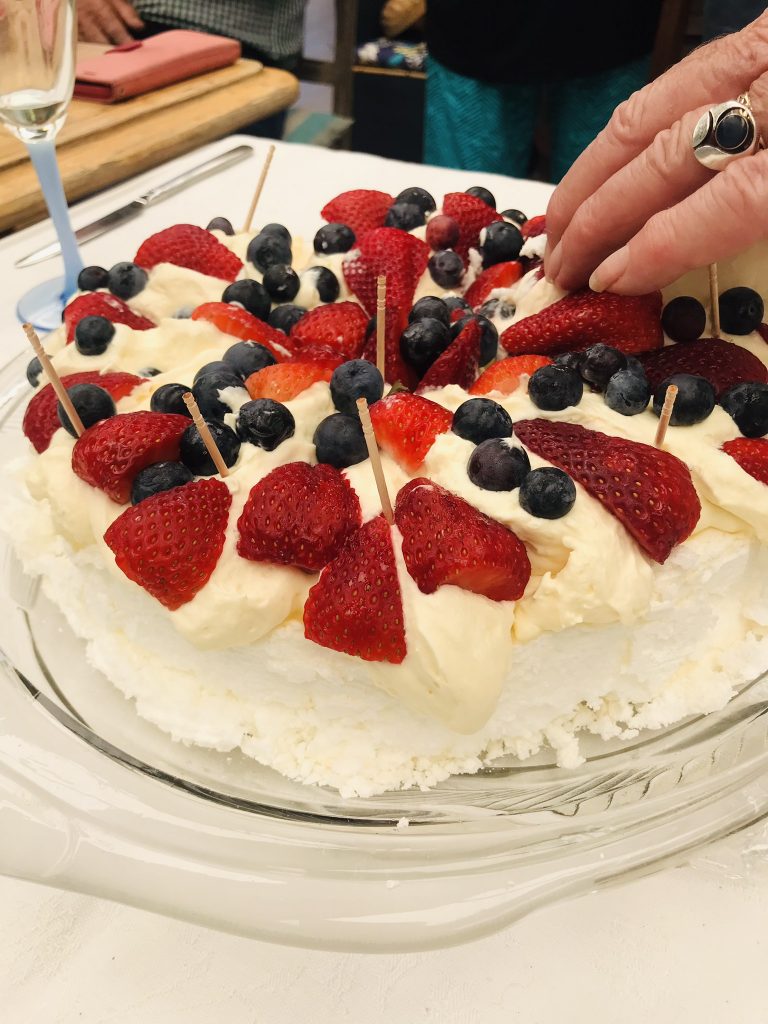
Berry, berry Christmas, everyone!
The weeks leading up to Christmas were, even in the time of COVID, a flurry of activity: the end of school, food and gift shopping, cooking and baking and the end of year catch-ups with family and friends. By the time we all finished the last of the pavlova at Christmas lunch, we were exhausted and some of us had to retreat to the cool of the lounge room for a little nap. I’d had my booster shot on Christmas Eve so felt lethargic and no fun at all anyway.
The Festive Mental Load: Are we there yet?
While it’s nice to think of all the lovely aspects of Christmas, like the Christmas Day feast, gifts and games- they don’t just “happen” Someone has to put it all together. A lot of work goes into Christmas. And elves aren’t going to be doing it. Traditionally it’s mum but whoever ends up bearing the brunt of it is bound to be at risk of the mid-afternoon melt-down.
Just because it’s Christmas it doesn’t mean the regular demands of maintaining a household magically disappear. If anything, because of work and school breaks and a steady stream of visitors, those demands increase. On top of this are a number of other duties (decorating, food and gift buying etc), many of which are expensive and then the cheaper items are plastic and ephemeral- which adds to the guilt of adding unnecessarily to landfill.
Three New Traditions
I have found three Scandinavian inspired ideas which are now a part of our Christmas tradition and vocabulary. It’s true that the winter landscape and short days for the northern hemisphere Christmas are a world away from our bright summer days here in South Australia- that does not mean we can’t enjoy that cosy feeling of being around loved ones at a festive time of year.
Christmas Eve: Jólabókaflóðið (flood of books)
This gorgeous tradition originated in faraway Iceland. It is the idea of gifting loved ones on Christmas Eve a book and some chocolate. Then you can all settle in and enjoy reading and eating together!
In 1944 the Icelandic book trade started sending a book catalogue to every household in November. Christmas Eve, which is when presents are opened, became a night when people stay in to read their gifts, often with a cup of hot chocolate. Or just chocolate. It is (roughly) pronounced ‘Yo-lah-boh-kav-lord.’ Anyone reading this who can speak Icelandic- I am more than happy for you to correct me!
We supplement this tradition by wearing Christmas themed T-shirts. This year my daughter and I paid homage to our favourite Christmas movies.
I have a rather eclectic taste in books- and look forward to reading these. No image of chocolate. It was all eaten on Christmas Eve of course!
Pakkeleg: A Danish Gift Exchange Game
Pakkeleg (Pack-ah-lie) is a traditional Danish gift exchange game played during the holiday season which involves participants exchanging gifts based on rolling dice. It brings out the worst in us all in a (usually) fun way. Our Danish friends introduced us to this hilarious game when we shared a Christmas table in Bali.
How to play Pakkeleg:
What you need:
-1-3 wrapped gifts from each participant, 2 dice and a timer
Round 1: Everyone piles the presents in the middle of the room or table. Each person takes turns rolling the dice. If someone rolls a 6, they can choose a present. Go around the room, with each person rolling the dice, until all presents are taken.
And yes, some people might have more than one gift, while others have none. Life isn’t fair.
Round 2: Then the second round can begin. This time, set a timer for an agreed-upon amount of time. We do 10-12 minutes.Once the timer begins, players take turns again rolling the dice but this time when a 6 is rolled you can steal a gift.
Everyone will want to roll as quickly a possible to have the most chances to steal gifts.
Once the time runs out, the game is over and everyone can unwrap their present(s)… or sit and sulk with none.
We also play Round 3, when you can steal the unwrapped presents! This is actually the most fun, as you can end up with what you want!
We have our own rules but whatever the case, it is a good way of ‘recycling’ unwanted gifts or plastic ephemera whilst having a lot of fun. Variations of the rules are found here. (I especially like the rule of throwing a double six and losing all your accumulated gifts- I will try that one next time!)
In the Australian version of Pakkeleg, it is perfectly acceptable to include cans of fly spray and beer within the wrapped gifts. This year’s special items included ‘hangover packs’ of heartburn and headache tablets, some books, and a Whoopee cushion. Our Danish friends wrap the gifts beautifully in Christmas paper. We recycle old newspapers. It also gives us something to read later on.
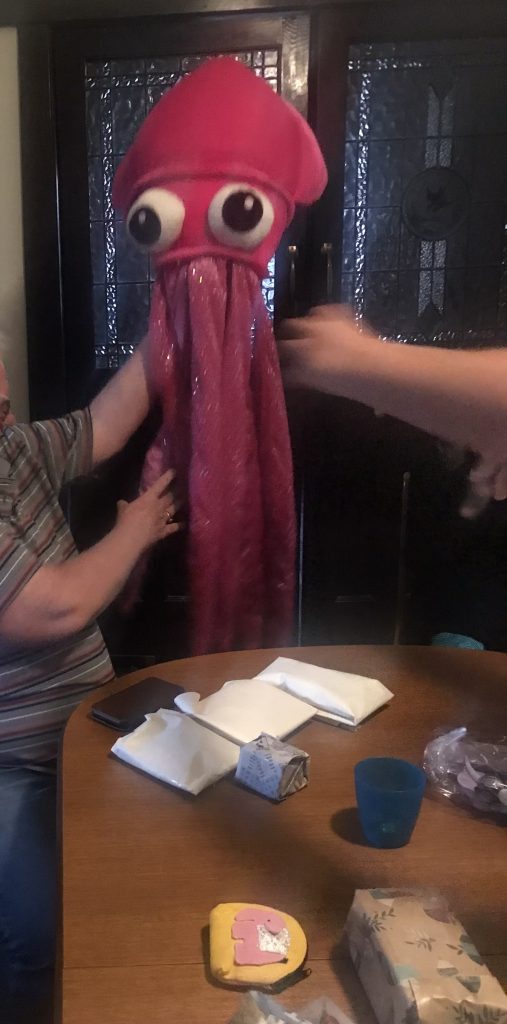
The fuzziness of this photo is a testament to the flurry of activity that occurs during the game. The game is also an excellent way of getting rid of the giant pink stuffed squid toy that happened to be living in our garage.
Romjul: A time for rest, reflection and eating a lot of leftovers
There isn’t a specific name for the week between Christmas and New Year in English; the blank space stretching between these dates when time loses its meaning. For many of us, this is the only time of year when it feels possible, and even encouraged, to do nothing.
The British call this week “Boxing Week,” an extension of the more formal holiday Boxing Day, on December 26. Boxing Day is a tradition that may stem from wealthy families giving presents to their household staff the day after Christmas; nowadays it is a time to box up and get rid of extra food or repurpose some unneeded gifts.
In Norway, they call it Romjul (room-yool) or, which basically means the period between Christmas and New Year. Romjul is a tranquil time of the year when families get together, undisturbed by the outside world. Simply put, it translates as: “that time between Christmas and New Year when no-one is really sure what they should be doing.”
We tend little aimless during these few days, especially if the weather is blisteringly hot out. We’re waiting for the new year, with all its resolutions and hopes for starting over, but we’re not quite finished with the old one. It also involves a lot of the eating of leftovers and rich and sweet foods, and drinking- normally saved for celebrations, sloth and gluttony become a lifestyle option.
These three traditions certainly help ease the busyness of Christmas and the mental load of trying to be all things to all people. The time of Romjul also has given me time to reflect on Christmas in more simple times, and connect our family traditions with those practised in the past. In my next blog post, I will look at the traditions of the German settlers in South Australia, and what the past can teach us about finding more meaning and joy in the festive season.

I have no idea who this dear little fellow is- he is a meme that has been doing the rounds for many years now and it pretty much sums up my perky and slightly annoying love of saying ‘…see you next year!’ toward the end of the old year.
References
https://www.mirror.co.uk/news/uk-news/whats-name-weird-period-between-25763878
https://www.theatlantic.com/family/archive/2021/12/christmas-new-years-dead-week-romjul/621098/

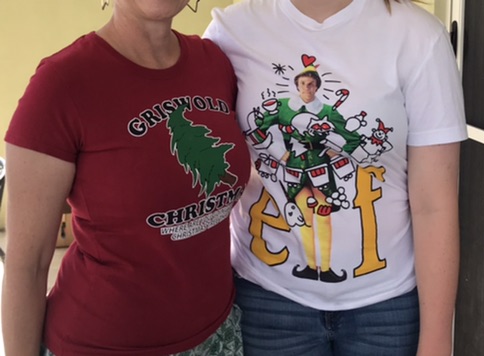
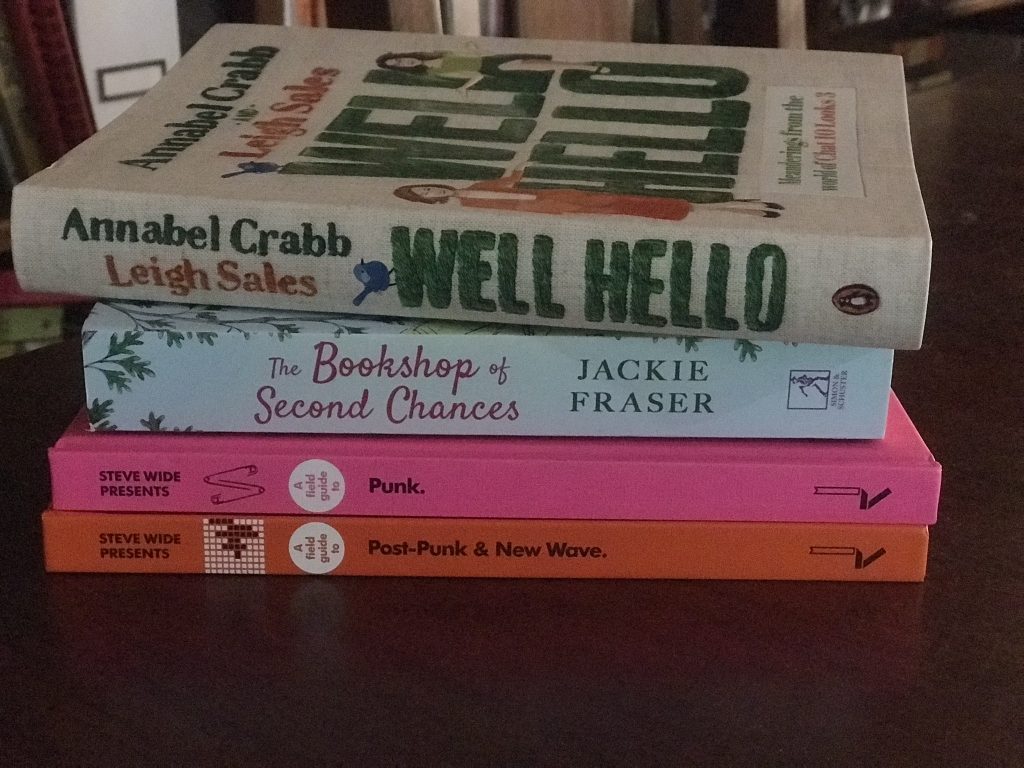
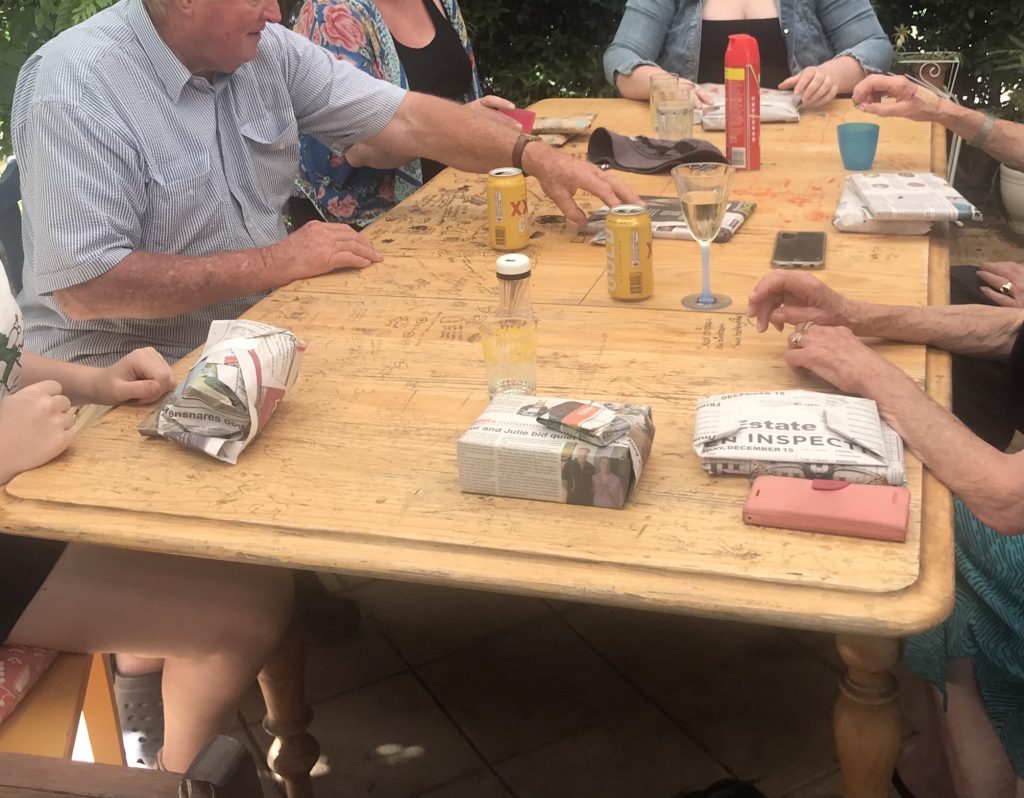

Leave a Reply